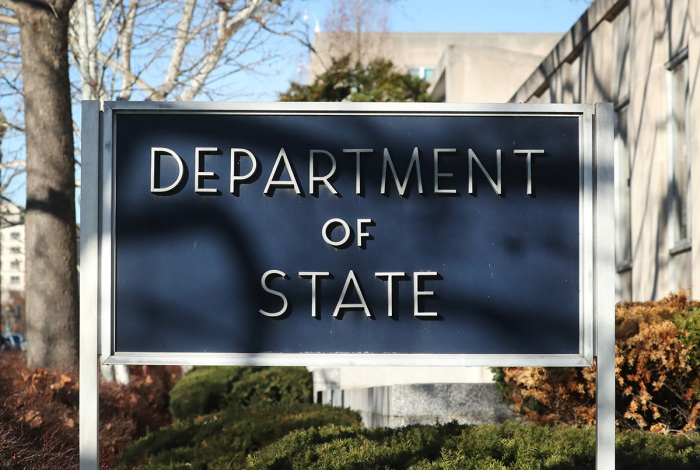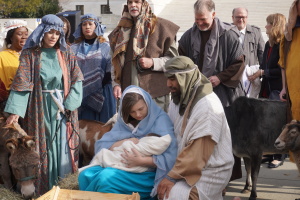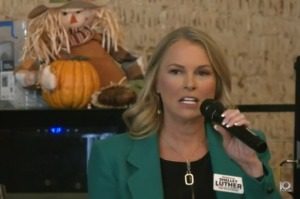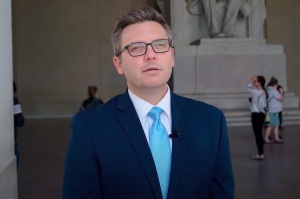Biden State Dept. criticized for removing Nigeria from top religious freedom violators list

Religious freedom advocacy groups and the top federal religious freedom advisory panel are criticizing the Biden administration for removing Nigeria from the U.S. State Department’s list of “countries of particular concern” amid concerns that predominantly Christian farming communities continue to face increasing violence.
The State Department released an updated list of countries of particular concern Wednesday, a designation reserved for the countries considered to be the world’s worst religious freedom violators. The list includes state actors that have engaged in or tolerated “systemic, ongoing, and egregious violations of religious freedom.” The designation carries the possibility of sanctions or other consequential actions.
Although Nigeria was added to the CPC list last December during the final months of the Trump administration, this year’s CPC list did not include Nigeria even though the religious freedom advocacy group International Christian Concern identified the African country as one of its 2021 “Persecutors of the Year” in a report published earlier this week.
“We are troubled by Nigeria’s omission as a CPC,” said ICC President Jeff King in a statement. “The Nigerian government has done almost nothing to stop the violence against Nigerian Christians, leading to continued violent persecution. In some instances, as with Kaduna’s Governor El-Rufai, the Nigerian government has even furthered the violence.”
“Nigeria is one of the deadliest places on Earth for Christians, as 50,000 to 70,000 have been killed since 2000,” the ICC Persecutor of the Year report states.
Northeast Nigeria is home to some of the world’s deadliest Islamic terror groups, including Boko Haram and the Islamic State West Africa Province. Over the last several years, millions have been displaced from the region, and tens of thousands have been killed due to increasing extremist violence.
In Nigeria’s Middle Belt states, predominantly Christian farming communities face danger from radicalized militant members of the nomadic Fulani ethnic group. According to ICC, Fulani radicals have “killed more Christians in the past several years than Boko Haram and have displaced Christian farmers.”
Nigeria’s removal from the CPC list drew the ire of the bipartisan congressionally mandated U.S. Commission on International Religious Freedom, a federal entity established to advise Congress and federal agencies on global religious freedom matters.
“USCIRF is disappointed that the State Department did not adopt our recommendations in designating the countries that are the worst violators of religious freedom,” USCIRF Chair Nadine Maenza said in a statement.
“While the State Department took steps on some designations, USCIRF is especially displeased with the removal of Nigeria from its CPC designation, where it was rightfully placed last year, as well as the omission of India, Syria, and Vietnam. We urge the State Department to reconsider its designations based on facts presented in its own reporting.”
David Curry, the CEO of Open Doors USA, a watchdog ministry that monitors persecution in over 60 countries, expressed concern. He suggested that the exclusion of Nigeria from the list of CPCs was “not only a baffling error” but “likely in direct violation of the International Religious Freedom Act, the law that requires these designations to be made in the first place.”
“Open Doors USA has documented thousands of targeted killings of Nigerian Christians every year for more than a decade,” Curry said.
“In no other country on earth do we see such a sustained level of outright violence directed towards a Christian community, and the situation has only deteriorated over the past 12 months,” Curry stated. “The Nigerian government has stubbornly refused to address this violence. The removal of Nigeria from this list will embolden bad actors and strongly deter efforts to bring peace to the region.”
Sam Brownback, the former U.S. Ambassador-at-Large for International Religious Freedom who now works as a senior fellow at Open Doors USA, shared Curry’s concerns.
“The sudden removal of Nigeria from the CPC list is a serious blow to religious freedom in both Nigeria and across the region,” the former Kansas governor and U.S. senator stressed. “Just when we should be doing everything possible to stop the relentless violence that’s targeting Christians and others, we do the opposite.”
“This rewards the Nigerian government for tolerating severe religious freedom violations and sends a message to extremists that their actions will continue to go unpunished,” Brownback added. “People of faith in Nigeria will bear the fallout of this decision, and that’s unacceptable.”
For the most part, the State Department’s 2021 list of CPCs closely mirrors the one released last year by the Trump administration with Burma, China, Eritrea, Iran, North Korea, Pakistan, Saudi Arabia, Tajikistan and Turkmenistan designated CPCs for the second year in a row.
USCIRF recommended the aforementioned countries and India, Nigeria, Syria and Vietnam for placement on the CPC list.
In a statement praising the Trump administration’s designation of Nigeria as a CPC, then-USCIRF Chair Gayle Manchin, the wife of Democrat Sen. Joe Manchin, noted that USCIRF had been recommending Nigeria’s inclusion on the list of CPCs since 2009.
As was the case in 2020, the State Department placed Comoros, Cuba and Nicaragua on a special watch list for governments that have engaged in or tolerated “severe violations of religious freedom.”
USCIRF also recommended that the State Department include Afghanistan, Azerbaijan, Egypt, Indonesia, Iraq, Kazakhstan, Malaysia, Turkey and Uzbekistan on the special watch list. In 2021, Russia was elevated to the list of CPCs, while Algeria secured a spot on the special watch list.
Secretary of State Antony Blinken vowed to “continue to press all governments to remedy shortcomings in their laws and practices, and to promote accountability for those responsible for abuses.”
Blinken indicated that the U.S. would work with “governments, civil society organizations, and members of religious communities to advance religious freedom around the world and address the plight of individuals and communities facing abuse, harrassment, and discrimination on account of what they believe, or what they do not believe.”
Ryan Foley is a reporter for The Christian Post. He can be reached at: ryan.foley@christianpost.com




























